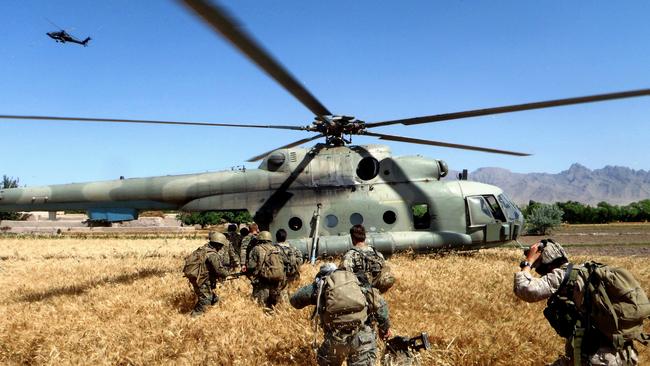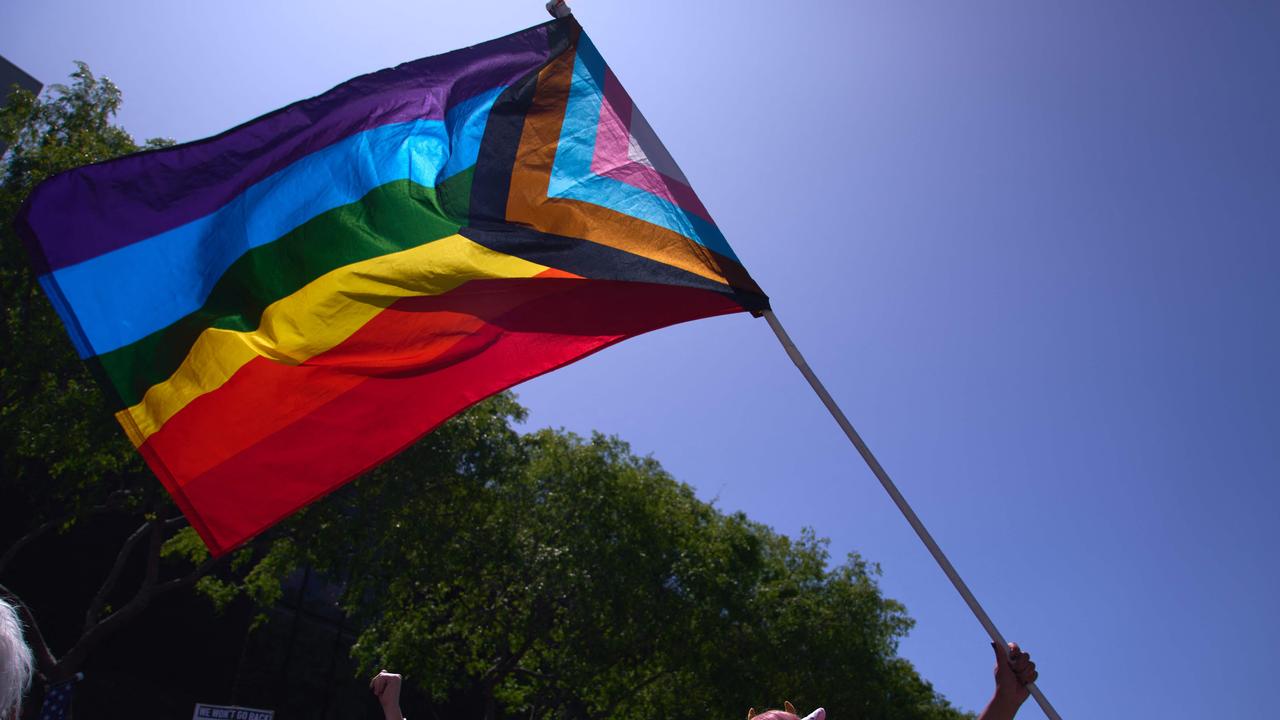
The withdrawal of US and allied forces from Afghanistan and ending the forever war was the right decision. But Joe Biden’s exit strategy, essentially inherited from Donald Trump, has been chaotic and shambolic. The larger truth, though, is that this war was never winnable and departing in humiliation and defeat was inevitable.
The idea that a garrison force should have stayed to prop up a crooked government and weak Afghan army in a prolonged civil war against the Taliban is a deeply flawed proposition. US troops are stationed in Japan and South Korea, but they are not fighting an insurgent force hellbent on creating an Islamic state.
Moreover, the notion of a residual US force remaining to carry out a mission of stalemate with the Taliban is not only a defective proposition given the history of the war and the history of Afghanistan, but it also belies the deep feeling among Americans from across the political divide that it was time to depart.
Trump must shoulder some of the blame for what has happened in Afghanistan in recent weeks. He authorised the reduction of US forces from about 13,000 to 2500 and planned to withdraw all of them by May 1. Mike Pompeo, the bumbling former secretary of state, negotiated with the Taliban and excluded the Afghan government. Trump even wanted to invite the Taliban to Camp David for peace talks.
If Biden reneged on the Trump-Pompeo strategy, it would have required a new commitment of troops to fight an emboldened Taliban. The idea that a US force of around 2500 troops could hold back the Taliban from Kabul is a neo-conservative fantasy. Biden would have been farewelling new troops to a renewed fight ahead of the 20th anniversary of the September 11 terrorist attacks.
Just months ago, Trump was trumpeting his withdrawal plan. “Getting out of Afghanistan is a wonderful and positive thing to do,” he said in April. “I started the process,” he said in June. “All the troops are coming back home. They couldn’t stop the process. Twenty-one years is enough, don’t we think.” To suggest Trump is not culpable in any way is just MAGA talking points.
Despite the heavy criticism of Biden by many commentators – the same analysts who said Kabul would not fall quickly and the war in Afghanistan could be won, and justified the invasion of Iraq because it had weapons of mass destruction – voters in the US and, I suspect, Australia overwhelmingly support the withdrawal of forces, just not the manner of their departure.
But none of this makes up for Biden’s failure to better manage the exit from Afghanistan. It has been poorly planned and executed. Biden’s assurances about the fate of Kabul were catastrophically wrong. It is yet another monumental failure of US war planning by the military-industrial complex despite reportedly being warned this could happen by US diplomats on the ground.
The scenes in and around the airport in Kabul, as Afghans who have aided the US and its allies fear for their lives and want to leave, have been gut-wrenching to watch. There have been many comparisons made to the fall of Saigon in 1975. These are valid parallels and will be seared into memory as yet another reminder of a failed US-led war.
This is a difficult time for the Australian soldiers who fought in Afghanistan. It is especially so for the families and friends of the 41 Australians who died. Any soldier who puts on the Australian uniform to serve deserves our admiration and appreciation regardless of the outcome of their mission.
The invasion of Afghanistan following the September 11 terrorist attacks in the US was justified legally, strategically and morally. It was right for Australia to invoke the ANZUS treaty and join the coalition forces in Afghanistan. The purpose was to hunt Osama bin Laden and degrade the capacity of al-Qa’ida and the Taliban to wage or support further acts of terrorism.
The subsequent drawdown of troops in Afghanistan in 2002 and 2003, coupled with the disastrous invasion of Iraq in 2003, led to several new commitments of forces to combat a resurgent Taliban. The West’s mission in Afghanistan became one of nation-building. It was never going to succeed, just as it was doomed to fail in Iraq and did.
Australians demand an honest reckoning of the two-decade war in Afghanistan. Peter Leahy, the deputy chief of army during the invasion of Afghanistan, has conceded the war was “lost” and questioned the overall strategy and decision-making among the coalition forces. We need a fresh inquiry that examines this conflict and the lessons to be learned from it.
We should have withdrawn from Afghanistan 10 years ago and paid a lower price in blood and treasure. It became a war of folly. This is not 20/20 hindsight. In October 2010, I wrote a column for The Sunday Telegraph arguing that it would likely end up being “a lost or, at best, stalemated war” and urged the withdrawal of Australian troops.
The year before, in 2009, Barack Obama agreed to the US military’s request for 21,000 additional troops. Months later, Afghanistan commander Stanley McChrystal asked for 40,000 more troops. It was clear then that this was a war that could never be won. General David Petraeus told Obama to keep fighting. “This is the kind of fight we’re in for the rest of our lives and probably our kids’ lives,” he said.
The US failed to learn the lessons of the British in Afghanistan in the 1800s and the Russians in the 1900s. The lessons of history were writ large but they were not heeded. It is why Afghanistan was called “the graveyard of empires”. The US and its allies have confirmed it.



